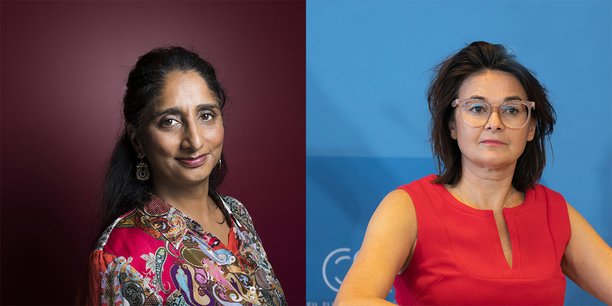Access to quality information is a combat sport in which all young people must be trained. Its teaching exists in educational establishments. His name is « EMI”, for media and information education. However, for many, this subject remains an abstruse acronym, carried mainly by professors, teachers and passionate journalists. And the time devoted to it in class remains anecdotal on the scale of schooling. However, today there is a democratic urgency to strengthen EMI for all. We propose to establish one compulsory hour per week for all our children.
After Arras and Hamas. After Nicolas, harassed to death. After Yevgeny Prigozhin’s propaganda – we no longer have a choice. It is imperative that we help younger generations understand information environments. We are faced with an unprecedented mass of information and a competition of points of view which are expressed without filter while social media pose ethical challenges to our societies. The digital revolution has indeed changed our relationship to information, as highlighted in the report by sociologist Gérald Bronner (Enlightenment in the digital age2022).
“Is it really necessary to spend so much time at school? » the skeptics ask. Yes. We must realize that we are facing an information war. Donald Trump’s clerics are flooding the screens of American voters with clever lies. Terrorist groups post the kills of their victims to recruit. Digital harassers humiliate their victims night and day. Those who fight the very values of our democracies fight tirelessly.
And U.S ? We face adversity without weapons. In this context, journalists and teachers must no longer kneel down. Media and information education is becoming as vital as learning French and mathematics. Let us dare to write that even today it surpasses them.
EMI is the essential grammar to give the individual back control of their information. Good news, we know how to share it. The educational range is vast, practical and fun: media workshops, learning the culture of debate, exercising freedom of expression and its limits, etc. These are the keys to understanding the making of information and disinformation: acquiring a better knowledge of how the media works, understanding and knowing the tools to combat false information, learning to exercise discernment, knowing how to exercise critical thinking. and maintain free will. This is’“learn to question the sources of information, to verify its reliability, to decipher its meaning and intentions”, says Serge Barbet, director of Clemi.
These skills are the essential foundation of a new digital citizenship. As recommended by the parliamentary mission on critical media education (February 2023) and its rapporteur Violette Spillebout (Renaissance), EMI should no longer be an education “for” but an education in its own right. Still conceived as transversal teaching, would it not be time to reinforce concrete practice in students’ timetables, particularly from the earliest ages of schooling? An hour per week, therefore, in addition to what is done in the different disciplinary fields or during a flagship action such as Press and Media Week at school? With greater recognition of the role and place of librarian professors?
During the Tour de France for media and information education, launched by France Télévisions throughout the country, we met committed teachers in Amiens, Rennes, Cayenne, Paris and Poitiers. But also journalists, faced with demands from educational establishments throughout France, who integrate EMI as a priority part of their profession. Information and media professionals, educators, teachers and trainers from all disciplines, neurologists or engineers in computer science and applied mathematics share essential expertise.
We therefore invite public authorities to cement this “school and media” partnership to enable an essential change of scale in the face of the information disorder to which teachers must know how to respond. A young person who knows how to inform himself can ferret out the truth from the falsehood. Decoding the conspiracy. Debate calmly. Equipped with the five Ws – who, what, where, when, why, for who did what, where, when and why – over the shoulder, critical thinking must be sharpened. As Stanford professor Sam Wineburg writes: “We manage our money online. We find our soul mate online. We choose our restaurant there. We do our research there. And school should remain on the doorstep… while the world is delivered to us on a screen…? » It is our duty as parents, teachers, journalists not to leave our youth disarmed. It is also that of political leaders.
We are facing an information war. Those who fight the very values of our democracies fight tirelessly. And U.S ?
* Center for Media and Information Education.
2023-11-12 04:55:36
#hour #week #media #education #Patricia #Loison #France #Nathalie #Sonnac #Clemi

)